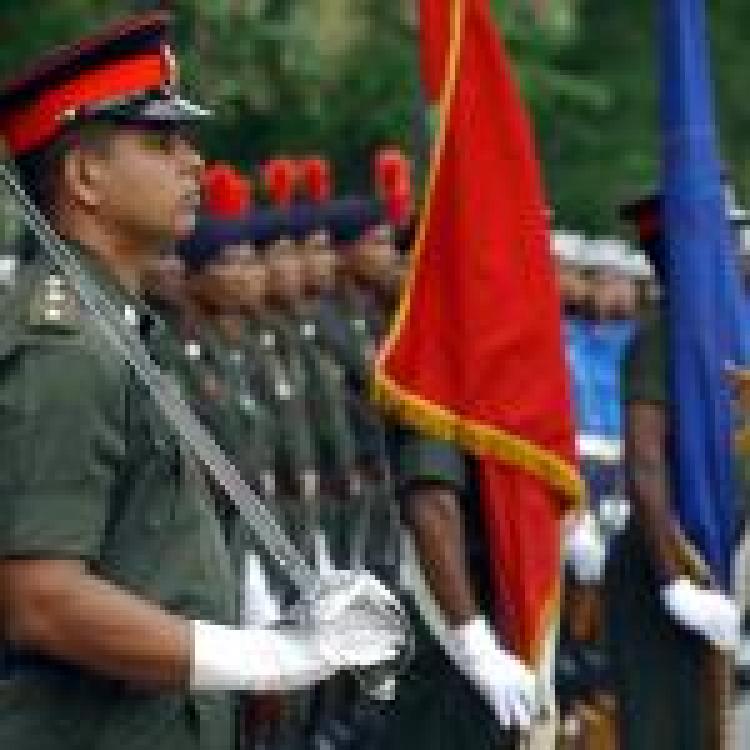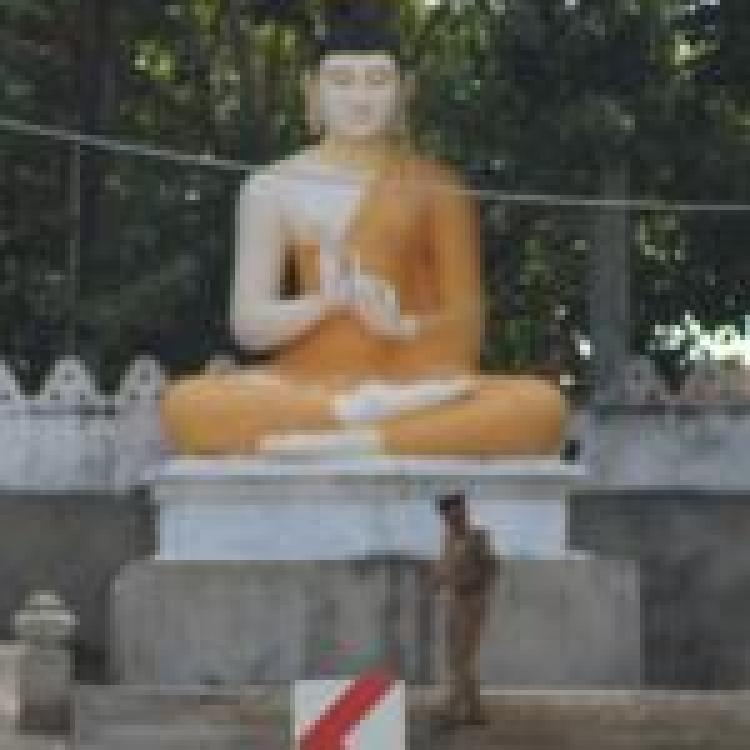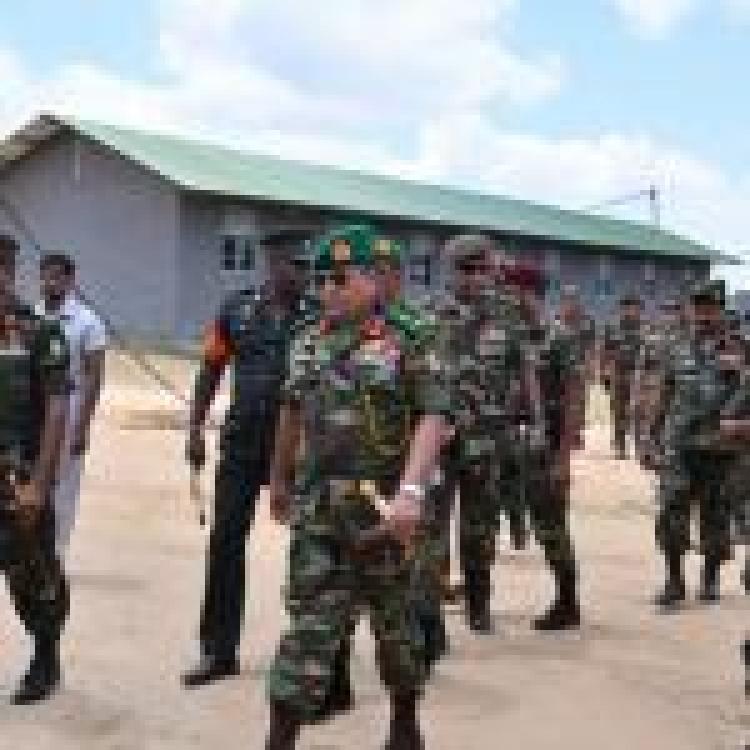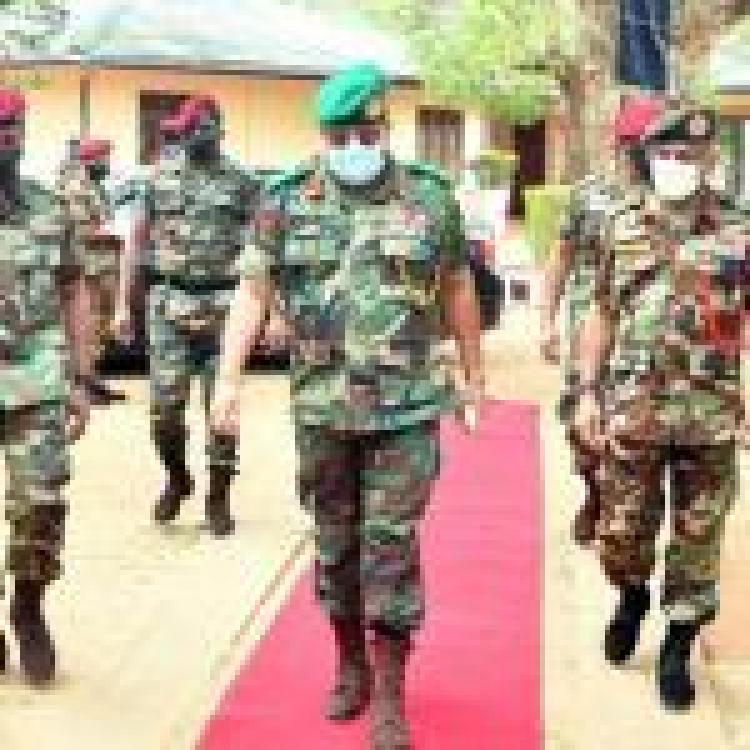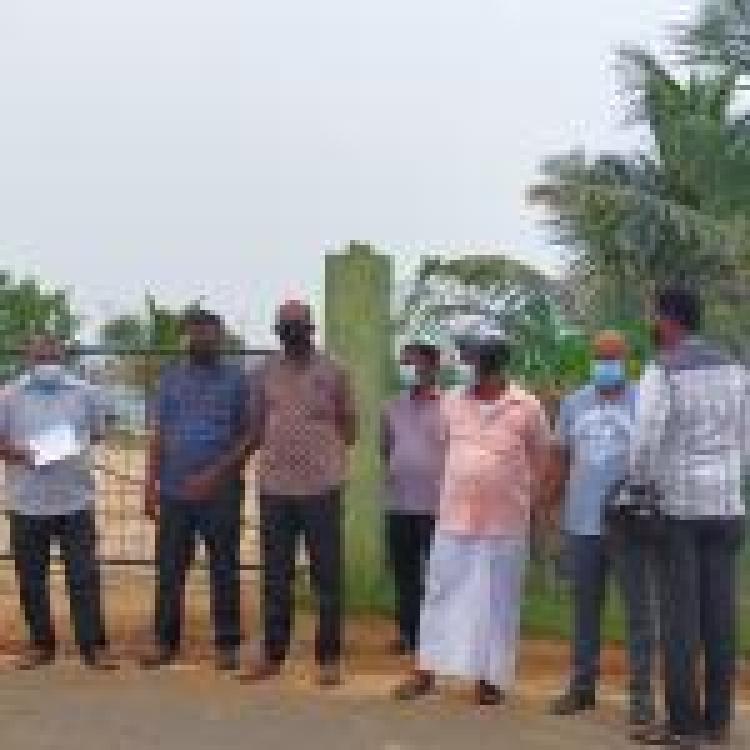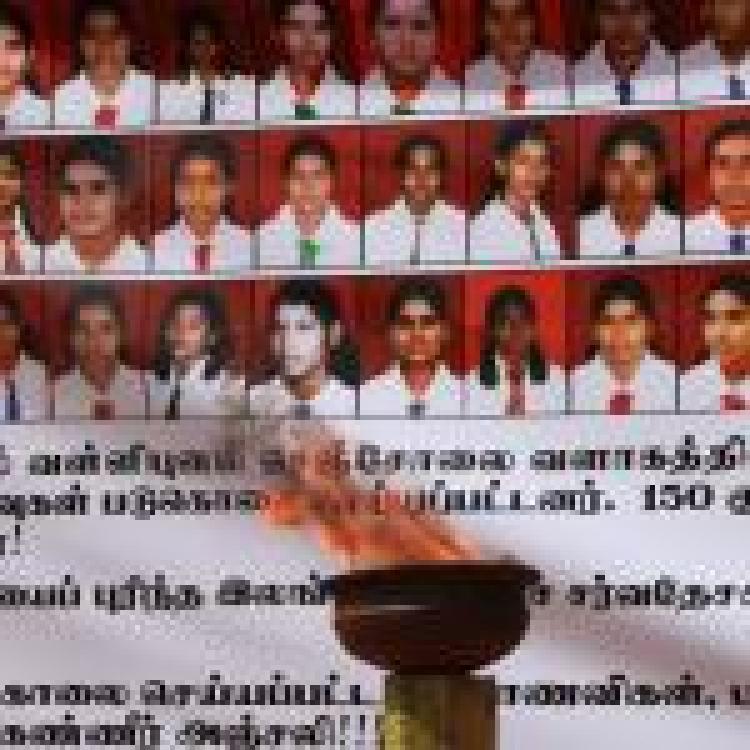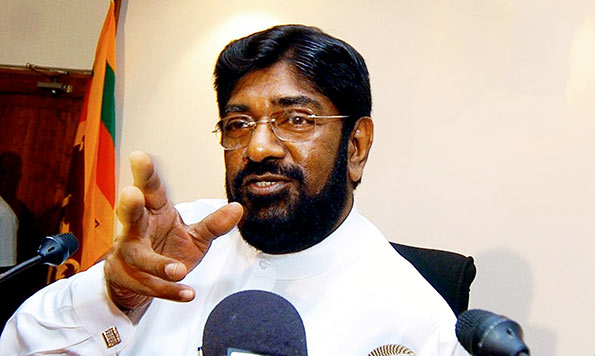
Keheliya Rambukwella
Keheliya Rambukwella, a Sri Lankan cabinet spokesman told reporters that he does not consider the proposal to enforce military training for youth above the age in 18 in Sri Lanka as “militarisation of the nation”.
Responding to questions raised by journalists, Rambukwella instead claimed “many highly democratic countries, such as the US and England have implemented military training for their youths”.
This week public security minister Weerasekera said he would propose to parliament the introduction of mandatory military training for youths over the age of 18. The proposal follows a pattern of increased military involvement and influence within the public sphere.
Military occupation of the North-East.
![]()
Sri Lanka currently has 346,000 active personnel for a population of twenty-one million. In comparison the United Kingdom currently has 150,000 active personnel for a population of sixty-seven million. It has been 11 years since the end of the armed conflict yet a vast majority of these standing forces who stand accused of committing war crimes remain deployed across the Tamil homeland, currently sixteen divisions of the Sri Lankan Army are based in the North-East.
The military presence across the North-East has led to many Tamil civilians being displaced from their land. Military land grabs are recurrent and protests by the local populace, even under heavy surveillance and intimidation, have been continuous against it.
![]()
The invasive nature of the military has led to many military-owned businesses operating across the Tamil homeland. Often these businesses hamper local economic development and leave the Tamil population unable to compete and sustain themselves independently. Military owned restaurants and tourists’ resorts built on Tamil land attract tourists from the south and abroad, they exclusively only employ military personnel.
Any employment opportunities available to the local population often leave them straddled with debt. The Civil Security Department (CSD) a branch of the military established by accused war criminal Gotabaya Rajapaksa. A report released by the South Asian Centre for Legal Studies (SACLS) comments on how the CSD aggressively targeted women headed households (WHH) and ex-LTTE cadres to work in agriculture plantations. Considered the most marginalised in society, these groups would be left debt and bound to the department until it is paid off, leaving them in precarious economic situations. The reports add;
“In the North, the CSD purposefully recruited among WHHs [women headed households] and ex-LTTE cadres for employment. It could be argued that these are the most marginalised groups who are the most in need of livelihood opportunities. However, CSD employees in the North and East are made more socially vulnerable as a result of their employment....The CSD recently introduced loans of LKR 1,000,000 to farm employees, with interest repayments deducted from monthly salaries. Respondents suggested that around half of the employees in all CSD farms had taken out these loans […] Although all CSD farm employees are entitled to leave their jobs at any given time, those who have taken out loans are not permitted to leave until the loan is repaid,”
A report published by the Adayaalam Centre for Policy Research highlights the detrimental role the CSD play in the Vanni. The report states;
"The growth of the CSD in the Vanni points to the larger issue of the Sri Lankan military’s failure to transition into a reduced post-war role. Instead, the military’s approach to its post-war role has been to embed and normalize the process of militarisation, thereby extending its control and subjugation of Tamil populations in the Vanni. The CSD is very clearly a part of the military, and so its provision of livelihood opportunities though much needed, must be read as the creation of economic dependence on the military, rather than economic development. Through this dependence and because of its military character, the CSD also suppresses civic and political activism of its employees, and further marginalizes women employed as this report explains. Alarmingly, a consequence of the CSD has also been the beginning of a destruction of community identity and cohesiveness."
Military lead destruction of temple
In recent weeks, a temple in Mullaitivu was destroyed and a Buddhist vihara was built in its place. The revealing of vihara was heavily attended by military personnel and a senior Sri Lankan minister. The area had been under intense pressure from state sponsored Sinhala colonisation schemes.
The Sri Lankan govt has intervened on behalf of Buddhist monks attempting to seize the site of a Tamil temple in Mullaitivu. Minister for 'national heritage', accompanied by army & archaeology dept, led an event at Kurunthoormalai placing a new Buddha at the Athi Aiyanar temple. pic.twitter.com/KUrMsd0Sdt
— Tamil Guardian (@TamilGuardian) January 18, 2021
Military government
Under the Rajapaksa regime numerous Sri Lankan military commanders have been promoted to senior government positions and the military influence within the public sphere has intensified. The Economist noted how Generals are taking over civilian roles and are placed ‘in charge of customs, the port authority, development agriculture and poverty eradication’.
Shavendra Silva, an Army commander who is banned for entering the United States due to his involvement in war crimes currently runs the coronavirus taskforce. Several other senior military officials occupy ministerial positions or are expected to be awarded ambassadorships. Last year the proposed appointment of accused war criminal, Sumangala Dias as Sri Lankan Ambassador to Canada was met with condemnation from Canadian politicians and civil societies organisations alike.
Read more at the Colombo gazette

